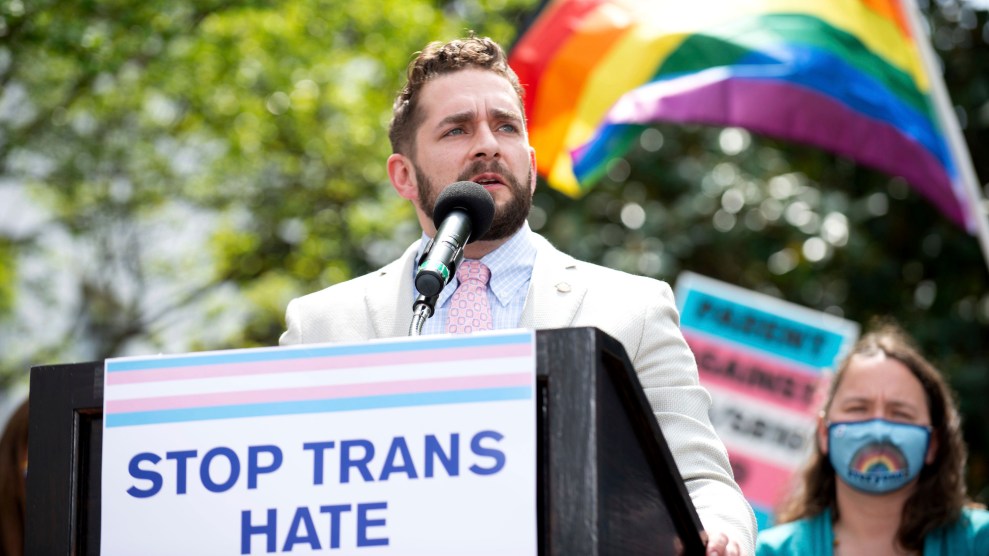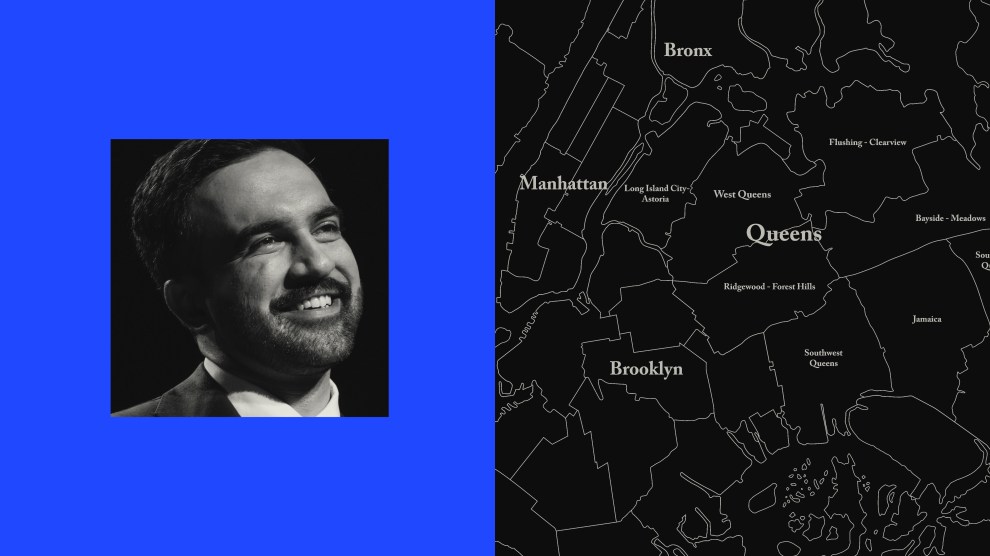
Representative Neil Rafferty, Alabama House District 54, speaking last year at the #LoveALTransYouth press conference in Montgomery, Alabama.Andrea Mabry/AP
A federal judge in Alabama has temporarily blocked part of a law that makes it a felony to prescribe puberty blockers and hormone therapy to transgender minors.
Judge Liles Burke, a district court judge appointed by Donald Trump in 2017, found no evidence to support Alabama legislators’ claims that they were banning “experimental” procedures. “[T]he uncontradicted record evidence is that at least twenty-two major medical associations in the United States endorse transitioning medications as well-established, evidence-based treatments for gender dysphoria in minors,” Burke wrote.
The decision to issue a preliminary injunction suggests that Burke will permanently block the limits on Alabama doctors when he makes a final ruling in the case. The judge left in place other parts of the Alabama law, including a section that requires school officials to tell parents if a student says they are transgender. He also upheld a section that bars gender-affirming surgeries for minors that doctors said in court are not performed in Alabama.
In his injunction, Burke framed the state law as an unjustified violation of parental rights. “Enjoining the Act upholds and reaffirms the ‘enduring American tradition’ that parents—not the states or federal courts—play the primary role in nurturing and caring for their children,” he wrote.
The Alabama law sought to impose up to 10 years of prison time for doctors who violate it. It was the first in the nation to levy criminal penalties against doctors who prescribe such medications, the Associated Press reported. As my colleague Noah Y. Kim wrote before it became law:
The bill comes amid a wave of anti-trans legislation that has swept conservative states from Arizona to Texas, prompting widespread alarm among medical experts and the transgender community…But even at a time of rising anti-trans sentiment, the Alabama bill stands out as extreme…medical practitioners who provide hormone treatment, puberty blockers, and gender reassignment surgery to minors would be threatened with a felony charge carrying up to a decade in prison.
On Friday, the Texas Supreme Court ruled that state could continue to investigate families who are seeking gender-affirming care for their children. At the same time, the court decided in favor of one of the first families contacted by Texas child protective service officials under the new policy.
One of the plaintiffs in the Alabama case, a father of a 13-year-old transgender boy from Birmingham, celebrated Burke’s ruling in a statement shared by the Human Rights Campaign. “Alabama is our home and we hope this cruel law will not be allowed to force us from it,” said James Zoe, a pseudonym to protect him and his son’s privacy and security. “We are fighting for our child and will continuing fighting so that he and all transgender youth in Alabama remain able to receive appropriate medical care.”


















